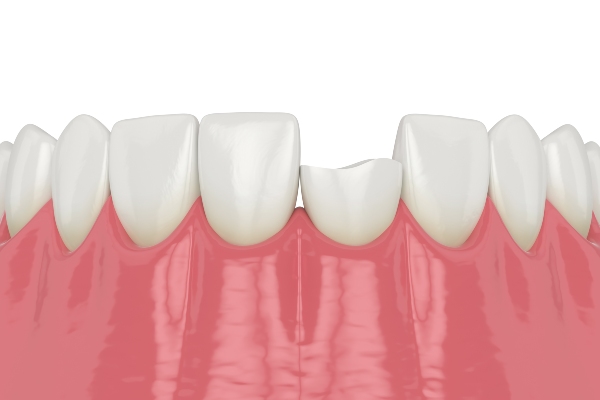3 Tips for Finding a TMJ Dentist

Do you suffer from a TMJ disorder, and are you looking for a TMJ dentist? Individuals can start by seeing their primary general dentist, who has training on the temporomandibular joint and how it affects one's dental health, including the jaw and entire skull.
In order to utilize the services of a TMJ dentist, it is first necessary to find one. When searching for a new dentist, it may be overwhelming, especially if there are a lot of options. Thankfully, there are a few tips that can be helpful when starting the search for a good TMJ dentist.
3 Ways to find a TMJ dentist
Below is an overview of how to find the right TMJ dentist for your situation. There are a few important things to keep in mind, which are outlined below.
1. Use friends and family
Friends, family, and co-workers are great resources to utilize when looking for a TMJ dentist. TMJ disorder is a lot more common than most people realize, meaning that most people know someone who also suffers from the disorder. While unfortunate that it is so common, it also makes for more resources to utilize. Asking friends, family members, or co-workers who they see for their TMJ disorder care can be beneficial when searching for your own.
Of course, each individual may have their own preferences when it comes to dental professionals, their offices, the staff, and the approach to treatment. However, leaning on referrals can be a good place to start. From there, individuals can undergo consultations to see what they think for themselves.
2. Do research
Research is a key part of finding a good TMJ dentist. There is a ton of useful information online, including the dentist's website, which will likely highlight their education, experience, and services. Additionally, there are resources like reviews about the office and the treatment.
Although it may sound like a bit of work, doing research can pay off later on. Finding a TMJ dentist who has experience in managing and treating the disorder can go a long way.
3. Ask questions
Another tip when looking for a TMJ dentist is to ask a ton of questions. Having the answers to questions or concerns can be a helpful part of the decision-making process. Dentists, of any kind, can provide in-depth, detailed answers to questions about treatment, problems, and approaches to reducing or eliminating symptoms that arise.
When it comes to TMJ dentists specifically, it is recommended to do meet-and-greets with potential options. The meet-and-greet can also be classified as a consultation, which allows for questions and concerns to be addressed, while giving the individual the opportunity to see the office, meet the staff, and get a feel for the TMJ dentist's approach would be for treatment.
Consultations can also include evaluations of the TMJ disorder. For example, the dentist can evaluate the symptoms that one is experiencing and discuss treatment approaches. This gives the individual the chance to fully experience what it may be like to work with the TMJ dentist.
The importance of finding a good TMJ dentist
Almost all general dentists are equipped to diagnose, manage, and treat a temporomandibular joint disorder. However, not all dental professionals are considered experts. TMJ dentists, specifically, spend their days focused on all aspects of the temporomandibular joint and how it can affect dental health and the jaw. Because of this, it is a good idea to visit a TMJ dentist when suffering from the disorder.
Having a dentist who has experience treating a specific disorder can make for a more focused plan, thus ensuring that the treatment process and care will be personalized to one's specific TMJ disorder symptoms. In the long run, the TMJ dentist will come up with a custom plan to reduce, if not completely eliminate symptoms.
Do you suffer from a TMJ disorder?
Those who are suffering from a TMJ disorder should not let their symptoms go ignored. While it can be challenging to find the right TMJ dentist, it will be worth the effort. Having a go-to dental professional to utilize when suffering from TMJ disorder can make life a lot easier. For example, symptoms will be significantly reduced, if not eliminated completely, thus making for less discomfort and ideal function.
To find out more about TMJ dentists, the work that they do, and how to find the right one, contact our dental office today.
Request an appointment here: https://gkdentaloffice.com or call GK Dental PC at (617) 826-6075 for an appointment in our Everett office.
Check out what others are saying about our dental services on Yelp: TMJ Dentist in Everett, MA.
Recent Posts
TMJ disorder is a serious condition that you should keep an eye on. Your dentist can check for signs and symptoms of this disorder. There are also treatments available to give you the relief you need. However, you do not need to wait to go to the dentist’s office to know that you have problems…
Temporomandibular joint disorder or TMJ disorder refers to a condition that affects the muscles, ligaments, and joints surrounding the jaw. The TMJ is a ball and socket hinge that uses sliding and hinging motions to function. The joint is at the back of the jaw and includes a bony bump called the articular eminence. The…
Temporomandibular disorders, more commonly called TMD, are ailments that cause pain and dysfunction of the jaw joint and the surrounding nerves and muscles. Some patients live with the discomfort for years while others might experience a sudden onset. The jaw joint, or temporomandibular joint, is actually two pairs of joints that allow the jawbone to open,…
TMD, also known as temporomandibular disorder, is a disorder that occurs as a result of problems stemming from the jaw, jaw joint and surrounding facial muscles responsible for chewing and moving the jaw. TMD is also closely associated with TMJ, the temporomandibular joint. This joint is the hinge joint connecting the mandible to the temporal…


